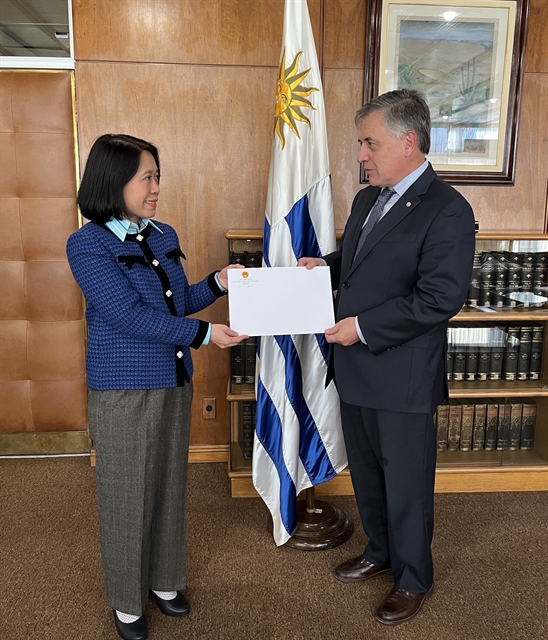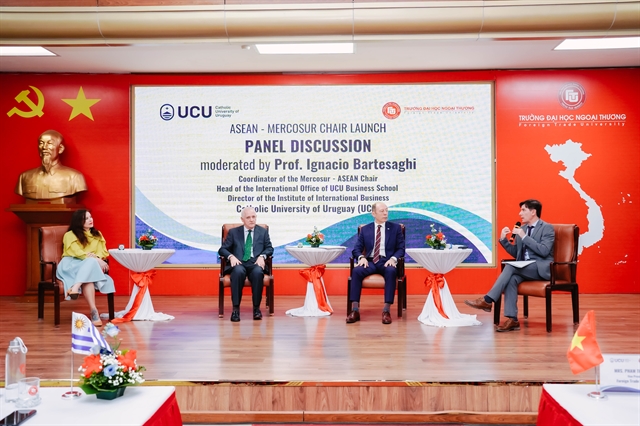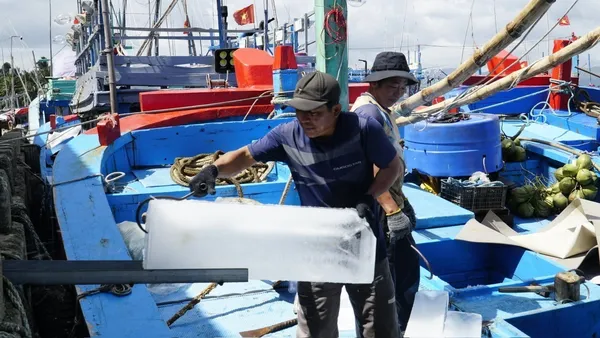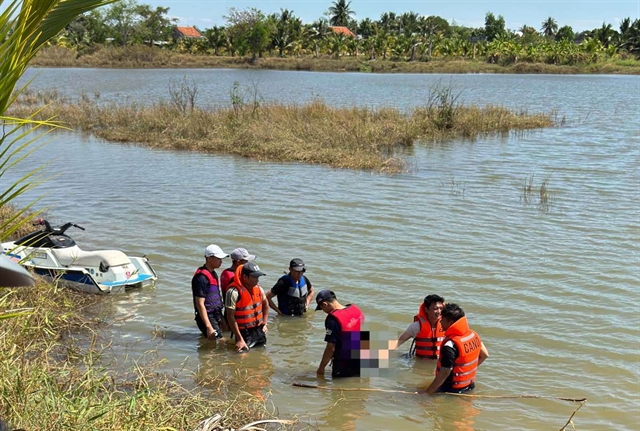 Politics & Law
Politics & Law

 |
| A panelists at the launching ceremony of the launch of the ASEAN-MERCOSUR Chair at the Foreign Trade University in Hà Nội on October 14. — Photo courtesy of FTU |
HÀ NỘI — The Hà Nội-based Foreign Trade University (FTU) hosted the launch of the ASEAN-MERCOSUR Chair on October 14, marking a significant milestone in advancing academic and diplomatic cooperation between two of the world's most dynamic economic regions — ASEAN and MERCOSUR.
In the opening remarks, FTU Vice Director Phạm Thu Hương said: “The launch of the ASEAN-MERCOSUR Chair is a critical step forward, reaffirming the shared vision of both regions to build a sustainable partnership. This Chair is not only a symbol of connection between ASEAN and MERCOSUR but also a platform to foster multilateral dialogues across various key sectors.”
At the event, representatives from a number of embassies expressed their support for the ASEAN-MERCOSUR Chair in promoting trade and enhancing cooperation between the two regions.
Ambassador of Uruguay Raúl Giampietro expressed his gratitude to FTU for its efforts in becoming an academic bridge between ASEAN and MERCOSUR. He said that this collaboration would contribute greatly to the sustainable development of both regions.
Ambassador of Argentina Marcos Bednarski highlighted the importance of youth engagement. He said that students are the future of every nation and the world and their participation in this event was a testament to the critical role the younger generation plays in building strong international relations.
Ana Nogueira, Chargé d'Affaires, Embassy of Brazil in Việt Nam, said Brazil’s pioneering role as the first MERCOSUR country to establish relations with ASEAN, expressing hope for further cooperation in areas ranging from economics to cultural exchanges.
Ambassador of Việt Nam to Argentina and Uruguay, Ngô Minh Nguyệt, also highlighted the immense potential for collaboration between ASEAN and MERCOSUR.
“By enhancing our economic ties, we can create a win-win situation that propels both regions towards greater prosperity. Such ties will not only boost trade and investment but also facilitate knowledge exchange, technology cooperation and cultural understanding between people of the two regions,” said Nguyệt.
Ambassador Nguyệt further emphasised the strategic role of Việt Nam as a gateway to the ASEAN market, particularly in sectors such as agriculture, manufacturing, and technology, and highlighted the importance of FTU as a key partner in fostering this collaboration.
Dr Ignacio Bartesaghi, Coordinator of the ASEAN-MERCOSUR Chair, presented an overview of the Chair’s objectives and outlined plans for future activities in Việt Nam, focusing on fostering trade, educational exchanges and technological cooperation between the two regions.
The event also provided an opportunity for FTU students and faculty, as well as students from the Catholic University of Uruguay, to engage in discussions with embassy representatives and Chair coordinators, further strengthening ties and exchanging insights on future cooperation.
Established in 2016, the ASEAN-MERCOSUR Chair is an initiative to foster dialogue and cooperation between ASEAN and MERCOSUR (Members of the Southern Common Market), particularly in economics and education.
The Chair supports bilateral trade activities, facilitates technology exchange in agriculture and industry and promotes joint research projects in science and technology. It also facilitates educational collaboration and academic exchanges between the two regions, contributing to the development of skilled human resources and expanding international cooperation opportunities.
The ASEAN-MERCOSUR Chair serves as a hub for research and collaboration, focusing on sustainable development, innovation and education. This initiative offers opportunities for students, scholars and businesses in both regions and contributes to long-term prosperity and global sustainable development. — VNS




